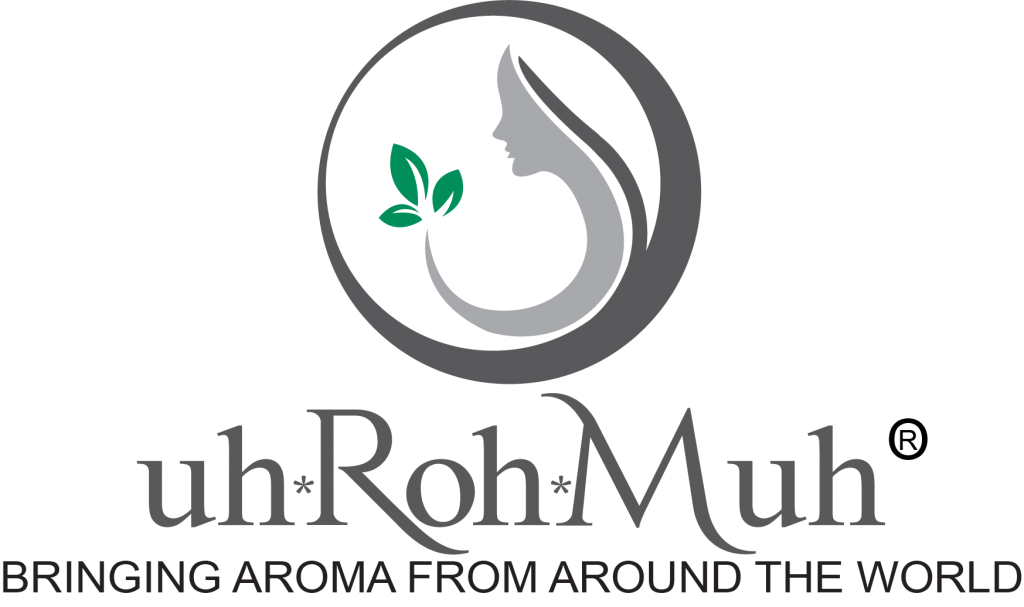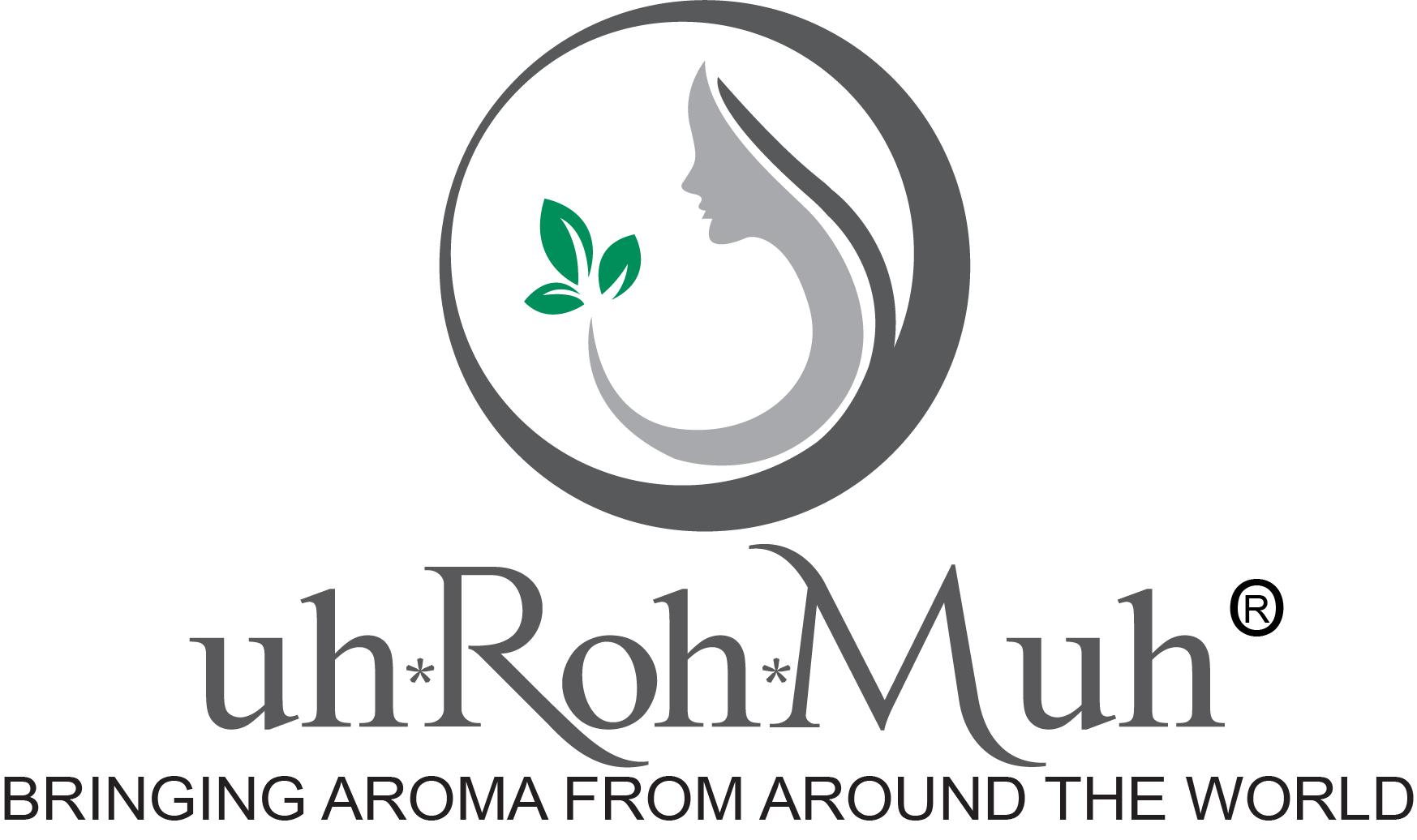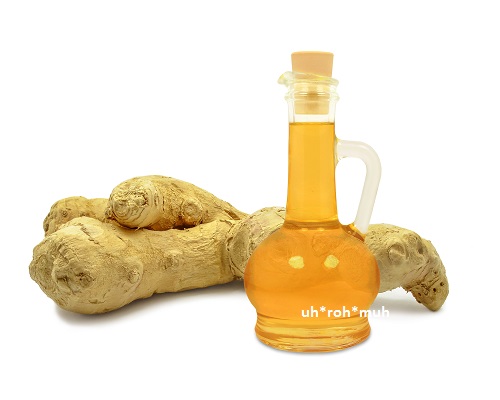Ginger Essential Oil
Ginger has been grown for millennia, prized for its aromatic qualities, its flavor, its medicinal value and its versatility in all kinds of cuisine. As an essential oil, it is one of the most therapeutic, and has been a staple in Chinese medicine for well over three thousand years. Ginger essential oil is extracted from the roots of the plant (rhizomes, actually), a knotty-looking tuber that varies in color, depending on the soil and climate it is grown in. Though the flowers and the stalks are also highly aromatic, it is only the rhizomes that are used for essential oil production. Steam distilled from the whole, unpeeled rhizomes, it can be made from a fresh, dried or ground-up source. Each source has slightly different aromatics, the dried roots being more earthy, while the fresh ground root is more spicy. It presents as a clear, medium-yellow colored thin liquid. Its scent is spicy, peppery, warm, earthy, camphorous and woody with a middle fragrance note. There is over 1200 different species of ginger, but the strain used for essential oil production is Zingiber officinale. Its chemical components include camphene, nerol, linalool, a-pinene, geraniol, b-pinene, 1,8-cineole, zingiberene, y-terpineol, borneol, geranyl acetate, and b-bisabolene.
Ginger essential oil in history
The ginger plant originates in Asia (China and India specifically), but it is also found in Africa, Japan, and the West Indies (Jamaica in particular). It also grows wild in many parts of the southern United States where some individuals manage to make a living foraging the rhizomes and bringing them to market. Brought to Europe as a condiment and a spice somewhere between the 10th and 15th centuries, it has long been associated with Asian cuisine and soft drinks, but is probably best known for its ability to ease the stomach and digestive tract. Its use in medicine has been recorded in early Sanskrit and Chinese medical texts dating back almost 5,000 years, and it is mentioned by the ancient Greeks, Egyptians, Romans and Arabians. In medieval times, it was widely used for confections, candies and sweets, and Queen Elizabeth I is credited with the invention of the Gingerbread Man, which went on to be a beloved Christmas tradition for many.
Ginger oil uses
Immune booster: strengthens the immune system and may help to prevent seasonal illness, coughs and colds.
Stomach maladies: an effective anti-emetic, provides reliable relief from nausea, heartburn, indigestion, diarrhea, motion sickness, and flatulence.
Digestive aid: stimulates the pancreas to release digestive enzymes and helps the body to process food efficiently through the intestinal tract.
Anti-inflammatory: eases the pain of arthritis, headaches, rheumatism and muscle aches due to overexertion. Ginger’s high level of zingiberene is largely responsible for this action, and as such can help manage the symptoms of many inflammatory diseases, such as fibromyalgia.
Improves circulation: stimulates blood flow to the area of contact, providing a warming sensation.
Kidney stones: thought to help dissolve kidney stones, which are made up of uric acid. In this vein, ginger should be useful in the treatment and prevention of gout.
Heart healthy: stimulating to the cardiovascular and respiratory systems, and is known to reduce bad cholesterol levels. Blood thinner; helps to increase lipid metabolism and lower blood pressure, which can lower your risk factor for diabetes and heart disease.
Anti-stress/anti-anxiety: ginger’s stimulating aroma calms a worried mind, eases mild depression and uplifts the mood.
Antioxidant: decreases the oxidative effect within the body, which can help combat the effects of aging. Known to suppress the oxidation of cancer cells, and studies have shown it effective in reducing the size of tumors in mice.
Liver tonic: ginger essential oil has shown to be effective in reducing the incidence of alcoholic fatty liver disease, helping to reduce liver scarring and protect against further damage.
Revitalize the respiratory tract: acts as a mucous solvent to break up congestion in the lungs and sinuses while calming a cough and relieving cold symptoms. Its anti-spasmodic effect also helps to ease the symptoms of asthma.
Increases perspiration: ginger produces a ‘hot’ oil, which can increase perspiration and thereby rid the body of excess toxins while producing a cooling effect.
Libido booster: a well-known aphrodisiac, ginger’s properties have a range of functions that can contribute to more satisfying intimacy. Treats erectile dysfunction in men, and encourages self-awareness and confidence while chasing away anxiety, fear and self-doubt.
Antiseptic: kills bacteria, dysentery and can be effective in treating infectious diseases and malaria.
Culinary: a popular flavoring in beverages, candy, and desserts as well as all manner of dishes in Asian, South Asian and West Indian cuisine.
Contraindications
Though complications from using ginger essential oil are rare, taken in high doses it can cause heartburn and mild irritation of the mouth and esophagus. It is a ‘hot’ oil, and should not be used undiluted on the skin. Heed all recommended dilution ratios and test on a small area of skin until you know your tolerance. Limit use if you are pregnant or nursing. As ginger has a blood thinning action, it can increase the risk of bleeding and prevent blood clotting. If you are having surgery or major dental work, discontinue use for two weeks before and after your procedure. Ginger is known to lower blood pressure and blood sugar. Use with caution if you are diabetic or if you are taking medication for hypertension. Ginger essential oil should not be administered to children unless they are under the direct supervision of a practitioner qualified in aromatherapy. Avoid contact with the eyes and mucous membranes, and be aware that ginger essential oil may be photo toxic. Do not expose your skin to direct sunlight following topical application.
Disclaimer
These statements have not been evaluated by the Food and Drug Administration. This product is not intended to diagnose, treat, cure or prevent any disease. If you are pregnant, nursing, taking medication, or have a medical condition, consult your physician before using this product.




You must be logged in to post a comment.